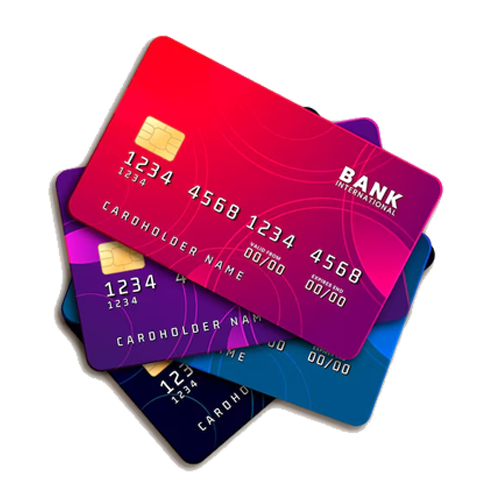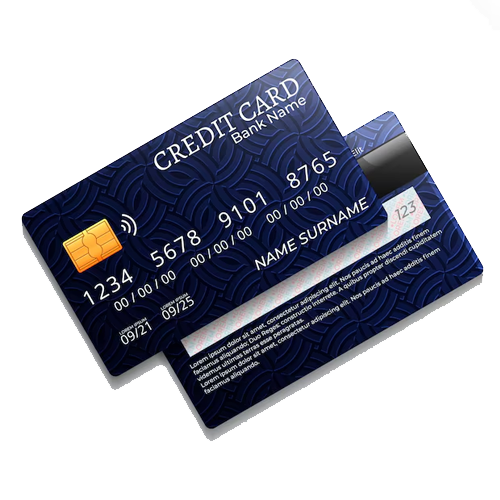Compare & Apply for Credit Cards

HDFC Diners Club Black
Annual Fee : ₹10000
Unlimited airport lounge access for primary and add-on members
High base rewards rate of 3.33% with 5 reward points per Rs. 150 spent
Up to 10X reward points on SmartBuy and 2X on weekend dining with up to 1:1 redemption ratio
Annual memberships of Club Marriott, Forbes, Amazon, Swiggy One (3 months) and MMT BLACK on joining

Axis Atlas Credit Card
Annual Fee : ₹5000
2.5X EDGE Miles on Travel spends
Up to 12 international lounge access every year
2,500 bonus EDGE Miles as welcome benefit
Redeem EDGE Miles at value of 1 EDGE Mile = 2 Partner Points

HDFC Regalia Gold
Annual Fee : ₹2500
5X reward points on Nykaa, Myntra, Marks & Spencer and Reliance Digital
4 reward points per Rs. 150 across all retail spends
Complimentary Club Vistara Silver & MMT Black Elite Memberships
Gift voucher worth Rs. 2,500 on the payment of joining fee

HSBC Credit Cards
Credit card rewards
Fuel surcharge waiver
Balance Conversion
Balance Transfer
Loan on Phone
Instant EMI

Axis Credit Cards
Fuel surcharge waiver
Reward points
Activation benefit
High security
Purchase protection
Off on zomato
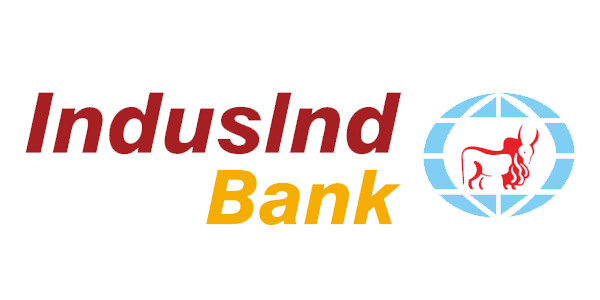
IndusInd Bank Credit Cards
Reward Point
Complimentary Tickets
Lounge Access
Online Concierge
Welcome Bonus
Travel Insurance
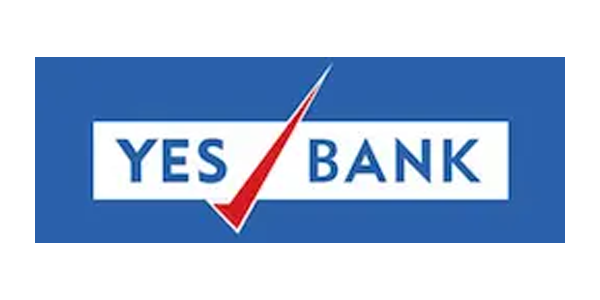
YES Bank POP Club Credit Card
Secure payments
Zero joining fees
UPI through RuPay
1% Fuel surcharge
Get POPcoins
₹5000 worth of Joining
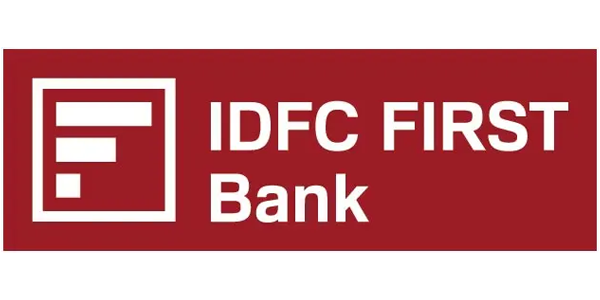
IDFC Credit Card
Personal accident cover
Rewards point
Discount on movie tickets per month
Zero forex markup fee
Interest free cash withdrawals
Unlimited reward points

SBI Credit Card
10X Reward Points
Welcome e-Gift Voucher
1% fuel surcharge
High security
Purchase protection
Amazon.in Gift Card

AU Credit Card
Cashback
Reward points
Purchase Protection
Interest-free period
Amazing Milestone Benefits
Secure payments
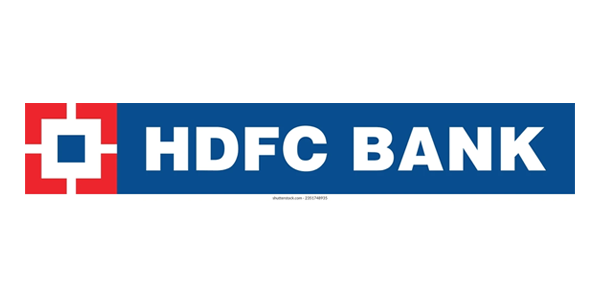
HDFC Credit Card
Interest-free credit
Recharges and tickets
Recurring payments
Rewards
CashBacks and discounts
Travel in style
Credit Card by Top Banks
Spend smartly with credit cards offered by top banks.

ICICI Bank Credit Cards

HDFC Bank Credit Cards

Yes Bank Credit Cards

Axis Bank

SBI Bank Credit Cards

Kotak Bank Credit Cards

Standard Chartered Credit Cards
Credit Card Features and Benefits
Credit cards come with varied features and benefits as per the type of the card. However, there are a few features that almost every credit card carries. Some of these pros of credit cards are given below:
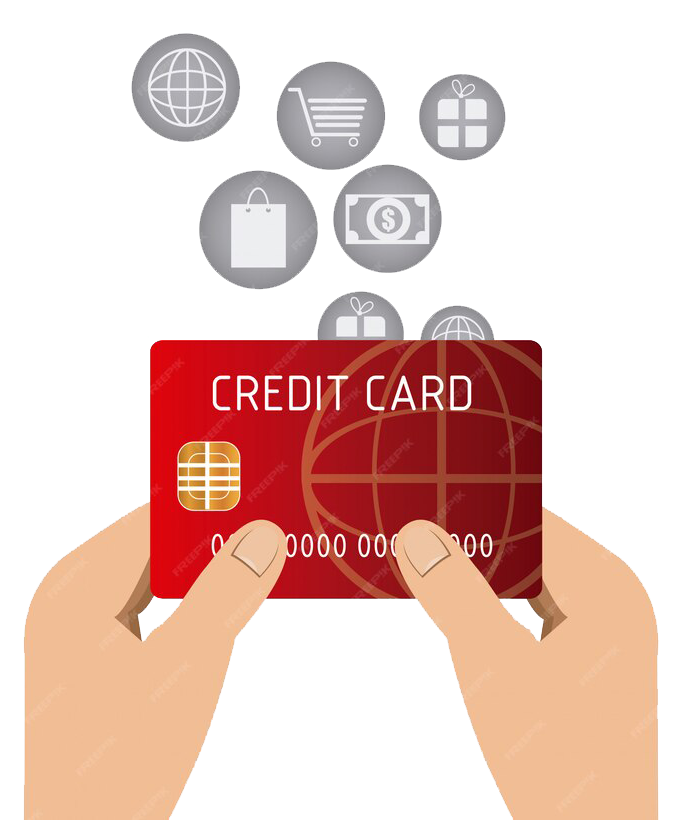
- Easy Access to Funds: The credit limit offered to you adds to your purchasing power and it can also be quite helpful in case of financial emergencies.
- Helps Build Credit Profile: With disciplined use of your credit card with timely payments, you can build a good credit score. A good score is quite helpful for availing loans to meet your life goals, like buying a home, getting a car, etc.
- Value-back on Every Purchase: Most credit cards offer value-back in one form or the other. On some cards, you earn reward points while others give cashback. Some cards may also offer direct discounts on select brands instead of rewards or cashback.
- EMI Conversion: You can convert your credit card big-ticket purchases into EMIs to divide the total cost into smaller portions to be paid over several months. This is especially helpful for users who cannot afford to pay a lump sum amount but can pay smaller amounts every month.
- Add-on Cards: The primary credit cardholders can share the benefits of their credit card with their spouse, children or parents by getting an add-on card issued to their name. As a primary credit cardholder, you can get add-on cards issued for your spouse, children or parents to share the benefits of the card with them.
- Fuel Surcharge Waiver: When you pay for fuel using your credit card, most credit cards offer 1% fuel surcharge waiver. However, the minimum transaction value required to avail this feature and the maximum waiver amount the transaction value for which you can avail the waiver and the maximum monthly waiver amount varies from card to card.
- Airport Lounge Access: Airport lounge access feature is not limited to travel cards only. Several other cards also offer free lounge visits, though the maximum number of free visits in a month, quarter, or a year varies from card to card.
- Insurance Cover: Some credit cards also provide complimentary insurance cover for air accidents, emergency hospitalization, lost card liability, luggage/document loss during travel, etc. The extent of cover varies from card to card.
- Concierge Service: Credit cards, mostly premium ones, come with a complimentary concierge facility which allows users the convenience of making travel bookings, gift deliveries, roadside vehicle repair assistance, etc. through the concierge desk.
Things to Know Before Applying for a Credit Card
Before you select and apply for a credit card, it is important to ensure that the card aligns with your spending habits and you can maximise your savings by availing its features to the best of their capacity. Here are a few tips you can follow during the process of picking the best credit card for you:
- Know Your Purpose of Getting a Card: You must identify your need to get a credit card. Generally, people look for a credit card to build their credit profile, to get a higher credit limit for their big-ticket purchases and to avail offers across spending categories that would help them save. Hence, the right card for you would be the one that matches your needs.
- Understand Your Eligibility: Once you know why you want a credit card, you should then check your credit score and go through the eligibility criteria of the type of cards you are interested in getting. This would help you know which cards you are actually eligible for. For example, you may want a card that offers exciting travel benefits but your income may be low for the card. So, you must ensure that the card you apply for has a good chance of approval. You can also get card suggestions based on your credit profile and income at Myfinflow. To start the search for the right card, click here.
- Shortlist the Cards: Based on your eligibility and the credit card comparisons, you can shortlist a few cards. This will narrow down your search for the right card. To shortlist, you can ask yourself some basic questions like whether it matches your core needs or whether you can afford its annual fee.
- Pick One That Offers the Best Value: Among the shortlisted card list, pick one that offers you the highest overall value-back. Also, think about whether you would like to use this card in the long-term and see if the bank would offer the option to upgrade to another card later.
- Choose How to Apply for a Credit Card: You can either compare and apply for a credit card directly through the bank or via a third-party website. With the latter, you get the option of comparing the cards from different banks to find the best-suited one for you which you can apply for online.
Credit Card Eligibility Criteria
The eligibility criteria differ not only from one issuer to another but also for different types of credit cards offered by the same issuer. While the basic requirements, like age, city of residence, regular source of income, credit score, etc. are likely to remain the same across card variants, the major differentiator is the minimum income requirement. Card providers set the income eligibility criteria for each card depending on its type, benefits, and annual fee.

- Age: Minimum age of 18 years
- Credit Score: Preferably a score of 700 and above
- Employment Status: Salaried or Self-employed
- Minimum Income: Varies from card to card
Documents Required for Credit Cards
Some of the key documents required to apply for a credit card are as follows:
| Document Type | Details |
|---|---|
| Identity & Signature Proof | Passport, PAN card, Driving License, Voter ID card, Aadhaar card, Employee identity card in case of government employees (any 1) |
| Address Proof | Bank statement, Rent agreement, Voter ID card, Ration card, Passport, Driving License, telephone/ electricity/ water/ Property tax bill (any 1) |
| Age Proof | Voter ID card, Secondary School certificate (class 10), Birth certificate, Passport, Aadhaar card, Pension payment order or Receipt of LIC policy (any 1) |
| Income proof | For Salaried: Latest 3 months’ salary slips, Salary account bank statement of last 6 months
For Self-employed: Latest IT Returns with computation of income and other certified financial documents, along with business continuity proof |
Note: If you receive a pre-approved card offer from an issuer, you may not have to submit any document proof, especially if you already have an existing banking relationship with the issuer.
Credit Card Do’s and Don’ts
| Do’s | Don’ts |
|---|---|
| Choose a credit card as per your spending behaviour | Do not apply for multiple credit cards at a time as it negatively impacts your credit history |
| Pay your bills on time & in full to save yourself from high interest charges | Do not make late payments as it incurs high interest charges |
| Check your credit card statement regularly to identify any fraudulent transactions | Do not exhaust your credit limit frequently as it can portray you as credit hungry and affect your credit score negatively |
| Keep an eye on your credit card reward points balance to maximize your benefits by redeeming them against the best options | Do not withdraw cash using your credit card to avoid high interest charges |
Disclaimer
Frequently Asked Questions
-
What is a credit score?
A credit score is a 3-digit number (between 300 to 900) calculated by the credit bureau using the credit history of the individual. Banks and NBFCs (Non-Banking Financial Companies) have to share the credit history of their customers with all four credit Bureaus. The credit history of an individual consists of credit amounts, lender names, Loan and credit card limits, Loan EMI and credit card bill payment records, any default on a credit card account, personal details, etc.
-
What is a credit report?
This may happen due to following reasons:
Credit scores from two Credit Bureaus would be different. There are four RBI authorized Credit Information Companies(CIC) in India- CRIF High-mark, Experian, Equifax and Transunion (CIBIL). Each Bureau has its own proprietary mechanism to calculate your Credit Score.
Credit scores fetched from the same bureau but on different dates can also differ. -
How can you increase your credit score?
Improving your credit score involves maintaining a good payment history, keeping credit card balances low, avoiding opening too many new accounts, and managing your credit responsibility.
You can build your credit score in 4 steps:
Use only 50% of your credit card limit a monthv Pay all your Loan-related dues on time
Use credit cards regularly based on your requirement
Make timely payments of your credit card bills or EMIs -
What are some of the best credit cards that work with Google Pay?
You can add RuPay credit cards as a payment method for UPI transactions made via Google Pay. This allows you to make purchases and transfers using your credit card even if your savings account that is linked to Google Pay does not have enough balance. Currently, cards of no other credit card network are allowed to carry out UPI transactions. However, you can link Visa and Mastercard credit cards with Google Pay to make non-UPI online payments.
-
What are some tips for secure credit card usage?
To ensure the secured usage of your credit card, it is advisable to not share your credit card details like the card number, expiry date, CVV, PIN, or OTPs with anyone. Moreover, the users should also track their card transactions and report any suspicious or fraudulent transactions immediately or in case they lose their card somewhere.
-
How does a credit card work for EMI?
When you purchase on EMI, you can defer the purchase over a fixed tenure of 3 months or more. You can opt to convert your purchase into EMIs either while making the transaction or later before the repayment due date. A processing fee and an interest rate is usually charged on EMIs which is lower than the late payment charges that you might incur on missing a payment. This interest is reduced according to the remaining balance every month. You can even opt for foreclosure in case of credit card EMIs but it will also incur additional charges.
-
What are the best credit cards for free movie tickets?
Many credit cards offer complimentary movie tickets or discounts on movie ticket bookings. Cards like RBL Play, and Kotak PVR provide you with free movie tickets based on your monthly spends, while SBI Card ELITE comes with free movie tickets worth up to Rs. 6,000 per year (Rs. 500 per month) without having to meet any spending milestones.
-
What is a credit card statement?
A credit card statement is a summary of all the transactions you have made using your credit card during a billing cycle, including your purchases, debit and credit payments, and other charges, as applicable. It also contains other credit account details, like the credit limit, total dues, payment due date, minimum due amount and other such information depending on your credit card usage. This statement is either mailed to the account holder or can be downloaded by logging into your account.
-
Which bank credit card is the best in India?
Some of the most popular banks offering credit cards in India are HDFC, SBI Card, ICICI, Amex, Axis, Citibank, Standard Chartered Bank, and Kotak Mahindra Bank. However, the best credit card for you would be the one that matches your needs. To make your search easier, we have listed some of the best and most popular cards in India above.
-
How to apply for a credit card in India?
You can Apply for a credit card directly through the credit card issuer’s website or branch, or by applying for online third-party websites like Myfinflow.com. Here, you can go for a credit card online apply based on card comparison, and find suitable options as per your eligibility.
-
How do credit cards work for beginners?
Credit cards work in the same way for everyone. By using credit cards, beginners can build their credit history & score, get a better understanding of how credit cards work, how they can maximize their savings by using the card features efficiently, and how repayment, and credit card fees and charges function. Beginners can also get an idea of their spending habits and analyze which type or variant of credit card would benefit them the most and hence can even apply for an upgrade later.
-
What is a credit card number?
The 14 to 16-digit number present on the credit card is called the credit card number. It is used to identify the credit card network, issuer, and cardholder.
-
When is the credit card annual fee charged?
The card provider charges a card annual fee every year in the same month cycle as the joining month of the first year. For instance, if you activated your credit card in March this year, then you will be charged with the card fee every year in the monthly statement of March.
-
What is a secured credit card?
A secured card is one that is issued against an asset say Fixed Deposit. It can be a good beginning for those who are not eligible to get a regular (unsecured) card.
Myfinflow Step Up is the best-secured card option for those who wish to build or improve their credit score but are not eligible for an unsecured credit card. The card has been launched in collaboration with SBM Bank (India) Pvt. Ltd. Users can choose from an FD of as low as Rs. 2,000 and up to Rs. 60,000 and avail a credit limit up to 100% of the FD amount. Along with using the features of this card, the deposit will earn interest at the rate of 6.40%. -
Can I convert my credit card purchases into EMIs?
Yes, you can convert your big-ticket purchases into easy EMIs as per the applicable EMI options available with your card. The interest rate on EMIs varies from lender to lender, thus it is better to check the interest rate beforehand. You can use the credit card EMI calculator to check the same. Also, some lenders in collaboration with big brands and online stores offer discounted or no-interest EMIs for their customers. You can check EMI options on your card using your net banking/mobile app or call bank customer care for more information.
-
Do all credit cards in India charge a high annual fee?
No. There are some credit cards with the best offers in India that are either free for a lifetime or charge a minimal annual fee. Examples of the low annual fee credit cards include HDFC Moneyback, HSBC Platinum & ICICI Amazon Pay Credit Card. You should compare & apply for credit cards based on how the benefits are aligned with the fees and charges, to make the right choice.
-
Which credit card in India has the best rewards program?
Almost all credit cards in India offer reward points with every purchase. However, some credit cards offer higher reward points with certain purchases and they have multiple redemption options. Click to read about the best rewards credit cards in India.
-
What are Add-On credit cards?
Add-on credit cards are issued under a primary card and all transactions are directed to a single account for the payment of dues. It is useful for students who are living away from their parents and also for those who cannot have a card of their own.
Mostly, the credit limit on an add-on card is the same as that of the primary card, but according to certain bank conditions, the credit limit for supplementary cards is set lower than that of the primary card. If you have been issued more than one add-on card, the sub-limit decided will be distributed equally among the add-on cards to match the total limit of the primary card. This sub-limit will also apply to any ATM withdrawals. The terms and conditions related to add-on cards may vary from one bank to another. -
What is the credit utilization ratio?
This is the ratio of your card usage to the total credit limit on your card. For example, if the total credit limit is Rs. 1 Lakh and you have used Rs. 30,000 out of it; your credit utilization ratio will be 30%. You should always try to maintain the ideal credit utilization ratio of 30% on all your cards.
-
How to transfer money from a credit card to a bank account?
Banks and NBFCs do not allow you to transfer money from your credit card to your bank account. Some mobile apps allow you to do this and charge a small percentage of the transferred amount as a fee. However, it is not a recommended way to get access to cash.
-
Do credit cards charge interest for non-payment?
The interest rate is applied on any balance you owe on your card. Credit card interest rates are the highest among various debt instruments available to the customer. In most cases, interest rates start at 18% and may go up to 45% annually based on various factors such as the type of card, card issuer policies and various other factors.
You can check and compare credit cards in India based on interest rates charged by different lenders here. -
What is the foreign exchange markup fee?
Whenever you spend in currency other than the Indian Rupee, almost every bank charges a foreign currency mark-up fee which ranges from 1.75% to 3.5% and varies from card to card. To know more about foreign exchange mark-up fees on credit cards, click here.
-
What is the interest on credit card cash withdrawal? Is it different from the cash withdrawal fee?
Credit Card cash withdrawal is considered to be one of the costliest forms of credit available in the market and is advised to be used only as a last resort. The interest charged on cash withdrawals ranges from 2.5% to 3.5% per month and 23% to 42% annually. Moreover, unlike regular transactions, for cash withdrawals, there’s no interest-free period; charges start accruing from the day of the transaction till it’s paid in full.
Yes, cash withdrawal interest is different from a cash withdrawal fee as this fee is charged every time a cardholder withdraws cash and it ranges from 2.5% to 3% of the transaction amount. -
Can I convert my reward points to cash?
Yes, this facility is available on select cards. You can convert the accumulated points into statement credit in a pre-decided ratio. For instance, SBI Elite cardholders can convert their reward points into cash to pay their dues. For this card 4 reward points equal to Rs. 1.
-
What is the minimum due in a credit card?
The minimum amount due on your card is the minimum amount you need to pay on or before the due date. It is a small portion of the outstanding every month. The minimum amount due is usually 5% of the total outstanding balance on your credit card but can be higher if:
- You bought something on EMI
- You spent more than your credit limit
- You have not cleared off your previous month’s dues
-
How can I pay my credit card bill?
There are various ways to pay your bills such as net banking, mobile banking, bill desk, NEFT, cheque, etc. Alternately, you can also walk into the nearest bank branch and make an upfront payment over the counter. However, cash payment attracts a certain fee.
-
What happens if I don’t pay my credit card bill on time?
In case you miss or forget to pay your bill, you will have to pay a late payment fee and additional interest charges. Late payment fee is usually a fixed charge based on the total outstanding amount on your card and will only be charged once in a billing cycle, whereas interest (also known as finance charges) is calculated as a percentage of the total due for as long as your dues remain unpaid. Also, when you have an overdue balance on your card, the interest-free period becomes invalid. This means your new transactions will start incurring interest charges from the first day. Since credit card interest rates are the highest among all credit products, even a small overdue can lead to a debt spiral and cause damage to your credit score.
-
What is the credit limit?
The credit limit is the maximum amount of money you can spend using your credit card. This limit is decided by the bank based on various factors, such as credit score, credit history, repayment history, and more. It is advisable not to frequently max out the credit limit as it can harm your credit score.
-
How do I increase my credit limit?
In order to increase your credit limit, you can contact your card issuer. To do so, you can use net banking and raise a request to increase your credit limit. Besides this, you can also contact the card issuer through the customer care number and ask the representative to send a request for a credit limit increase.
-
Can I use my credit card abroad?
Yes, you can use credit cards for domestic as well as international transactions, based on the card issuer’s terms and conditions. However, the card issuers levy a forex markup fee on overseas transactions, which is typically 3.5% of the transaction amount.
-
What is a revolving credit facility?
Revolving credit is a line of credit that allows you to withdraw money, use it as per your needs, repay it, and then withdraw it again when you need it. However, you can only access the money as per your assigned credit limit.
-
Do I have to use my credit card every month to build credit
Though it is not necessary to use your credit card every single month without skipping, it is still advised to use your card regularly to build your credit score. Even if you use your credit card to make small purchases, having a regular credit record with the timely payment of your monthly dues in full without any late payments can positively impact your credit profile and boost your credit score. A good credit score further improves your chances of approval as well as assures more favorable terms whenever you apply for a credit card or loan in the future.
-
What are the golden rules of using a credit card?
Once you apply for a credit card and get it issued, you must adhere to certain precautions and rules. Some of these credit card usage rules include not sharing your card details with anyone, not maxing out your credit card regularly as it can make you seem credit hungry, and avoiding overspending as that would make it difficult for you to repay your card dues later. It is also advised to pay your credit card bill in full by the due date to avoid accruing additional charges, like late payment fees and interest charges, and to maintain a good credit score. You should also plan your credit card spends in a way that can help you get maximum value back without exceeding your spending capacity.
-
Is it beneficial to convert credit card bills to EMI?
Credit card issuers offer the option to convert your credit card bills into EMIs, but it is generally accompanied by interest charges that you have to pay as part of your monthly installments. You can convert your credit card outstanding amount into EMIs if you cannot afford to clear the dues on time. This would help you decrease the financial strain by breaking down your credit card bill into smaller instalments which you can pay off over the EMI tenure of your choice. You can also opt for EMI conversion in case you need to make a big-ticket purchase for which you cannot pay the entire amount upfront. But opting for the EMI option on a regular basis can also drain your savings due to high interest charges, hence you must plan your purchases wisely.
-
How long does it take to get approved for a credit card?
The criteria and time frame for credit card application approval can vary depending on the card issuer’s internal policies, your credit profile, and the type of card you have applied for. Once you apply for the credit card, it usually takes around 7 to 10 days to process your application. This time period may be extended in case there is any discrepancy in your documentation. Most of the time, the card issuers provide timely updates on the approval progress. You can also get an application status update by contacting the issuer online or offline.
-
How can I cancel or close my credit card account?
You can close your credit card account online as well as offline. For offline closure, you can either visit your account branch and submit your request, write an application to the card issuer, or call the respective credit card customer care number. You can also use net banking or mobile banking services, or send an email to submit the card closure request. However, before applying for the same, you must ensure that all the outstanding credit card dues are paid off in full.


